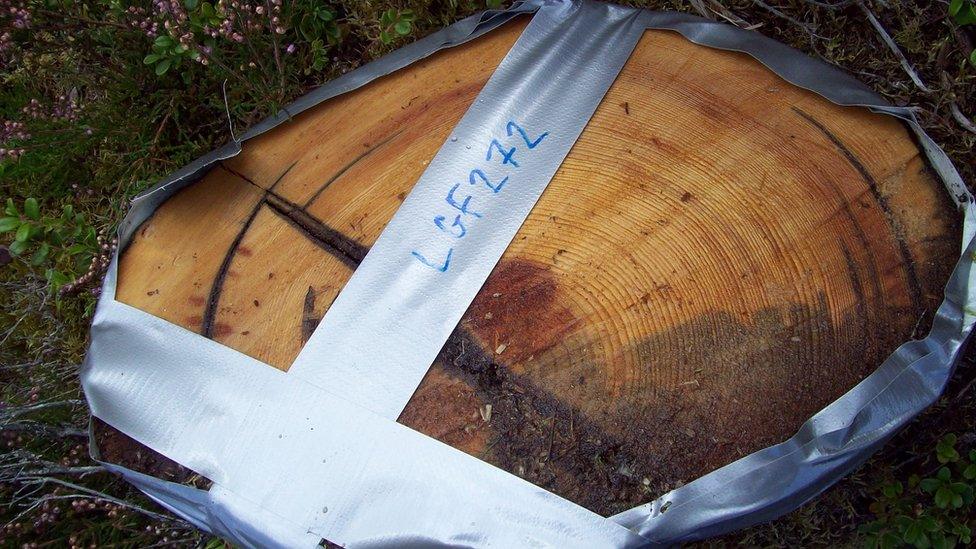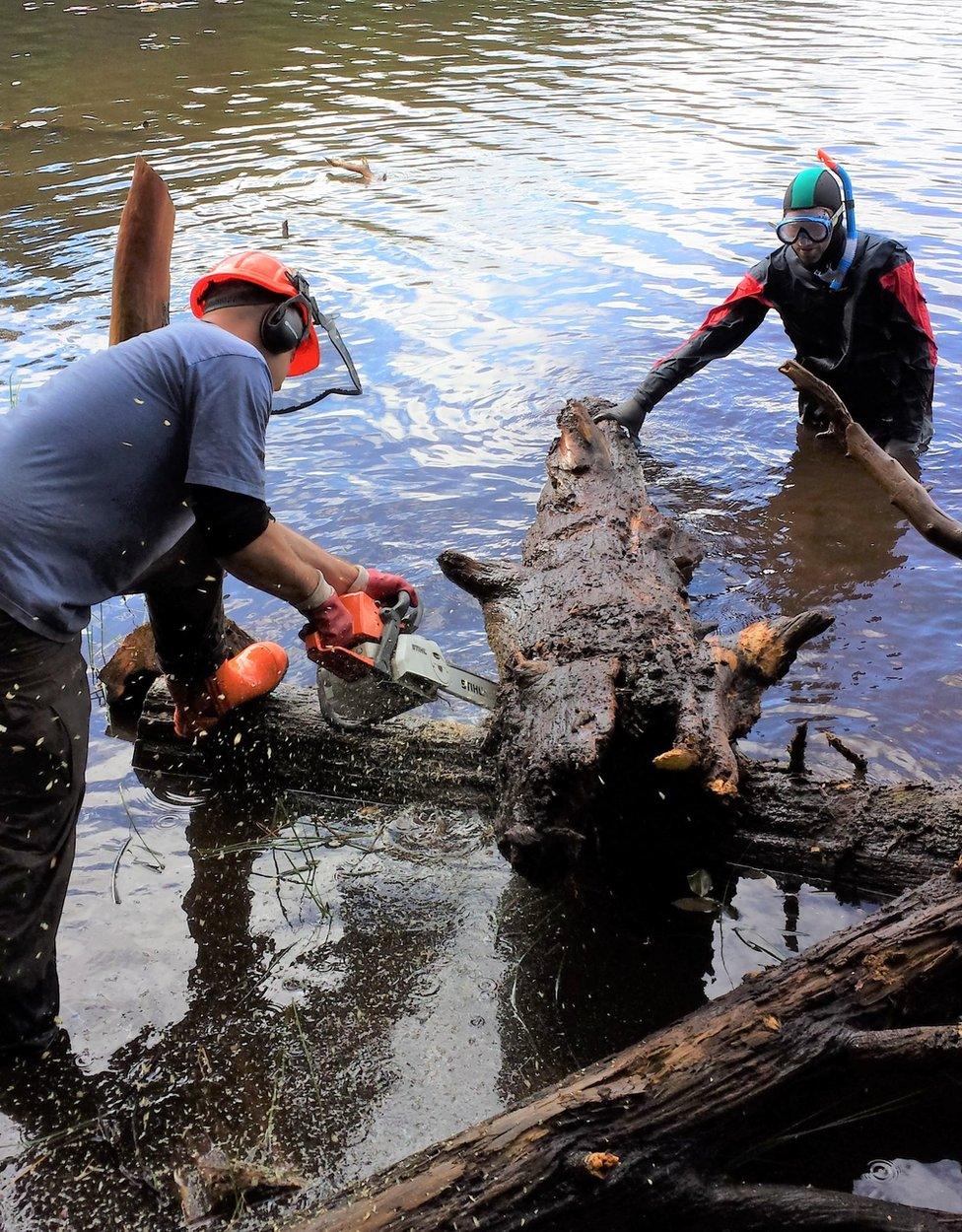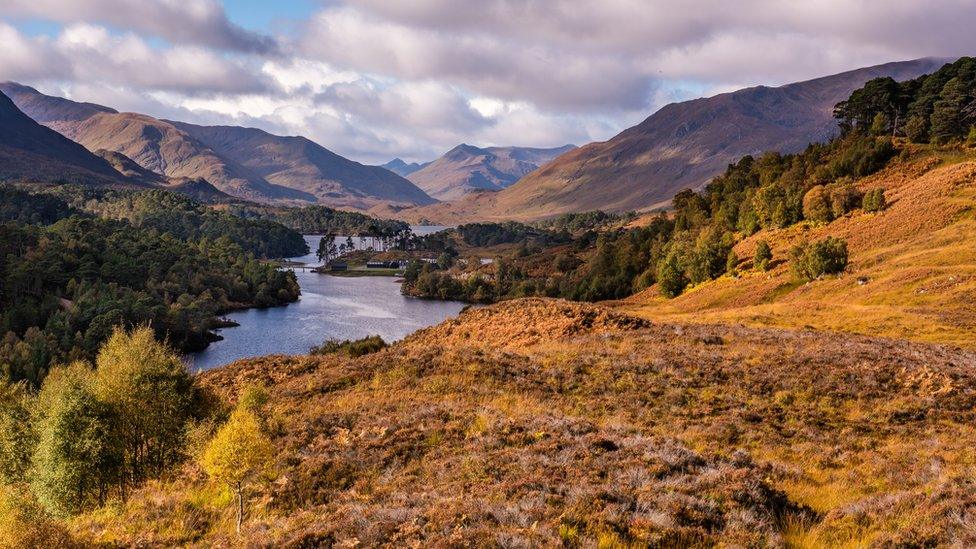Peatbog pines may hold clues to ancient woodland decline
- Published

The width and density of tree rings offer clues to the health of the plant over many years
Trees preserved in Scottish peatbogs could offer insights into the decline of ancient pine woodlands thousands of years ago.
By cutting through the trunks, scientists will be able to identify changes in the trees' health from the width and density of tree rings.
The University of St Andrews' project , externalaims to gather data on the decline from as far back as 6,500 years ago.
They said information currently available was "vague".
Prof Rob Wilson, of the University of St Andrews Scottish Pines Project, said samples from pines submerged in peatbogs would help scientists to explore the "mechanisms" for the shrinkage of Scottish pine woodlands several thousand years ago.
He said: "The information is currently vague and spotty but there is evidence for significant woodland decline circa 6,500 and 4,500 years ago.
"How much of this decline was environmentally driven or related to humans coming into the area is not yet known."

Ancient trees preserved in lochs in the Cairngorms have previously been studied

The project team is also working on research into how best to manage Scotland's woodlands in coming decades, with climate change having a possible "detrimental" effect on trees.
Prof Wilson said warmer, wetter weather could potentially cause harm.
He said: "We are trying to model the woodland response to such potential changes."
Last year, the Scottish Pine Project worked with Columbia University's Lamont-Doherty Earth Observatory investigating tree rings of ancient trees in lochs in the Cairngorms.
The scientists found evidence of a period of "extreme cold" in Scotland in the 1690s, external, during a time dubbed the "Little Ice Age" when weather was affected by a far away volcanic eruption.
Based on the width and density of tree rings the researchers collected, they showed that 1695-1704 was Scotland's coldest decade in 750 years.

The Scottish Pine Project is also investigating potential future climate threats to Scotland's woodlands